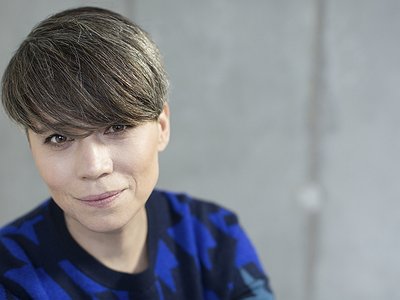Part 2
One of the most important aspects of a DJ set is the transition from one track to the next. What makes a transition successful from your perspective? What are some of the considerations that go into deciding which track to play next - are these purely subjective to you or are there objective things that work or don't work?
There are no rules for that. Transitions can be long and subtle or can have more energy, like when you a cut. If you know your records well, you are into it and you have the crowd on your side, then everything can work. I hate the word “flow” but let’s say that when it’s there, then generally you know what the next 3 or 4 records after are going to be. When it’s not, because let’s face it we’re all human and conditions are not always at their optimum, then it’s nice to be prepared and to know that this-or-that transition will get people on their toes. Generally that knowledge also comes from a lot of listening too.
How do you see the balance between giving the crowd what they want and treating them to something new? What's your take on the idea of the DJ as an "educator" and is the relationship with the dancers a collaborative one or, as Derrick May once put it, a “battle”?
I don’t wholly agree with the concept of being just the “educator” as that means the relationship only goes only in one direction. We both learn in the process. 20 years of dance floors made me the DJ I’m today, so I see it more like a partnership. When you dance or play tennis with a good partner you feel challenged, it’s exciting and that’s the best way to achieve progress. I always try to go where I want, but I’m always attentive to the audience. There are always smart compromises.
It is customary for many DJs to also produce tracks of their own, thereby lifting the former 'division of labor' between the two. How do you feel about this – and in which way can both sides benefit from this? How does your work as a DJ influence your studio productions and vice versa?
The benefits of releasing music when you are a DJ are obvious and I think this is one of the many reasons DJs start producing, although very often it’s the worst reason as not every good DJ is a good producer. I see myself more as a DJ than as a producer and instinctively my studio work feeds from that place. For example, when David Shaw and I made the Ballroom EP we really wanted something for the dance floor, we started to play the tracks at home even at an early stage to see if the construction and the drops worked how they should. If you take latest things I’ve done solo (Chloé, David Shaw and Gudrun Gut’s remix, or even Venom ) It’s obvious that my studio work feeds from all of the indie and ambient music I play when I warm up at Rex. The label is the same in a lot of ways.
With more and more musicians creating than ever and more and more of these creations being released, what does this mean for you as an artist in terms of originality? What are some of the areas where you currently see the greatest potential for originality and who are some of the artists and communities that you find inspiring in this regard?
I find it challenging sometimes to find originality. Very few artists bring in something new or original. Barnt is a fantastic exception though. Obviously we’re victims of so many revivals at the moment, whether it’s the early Chicago Sound, or nineties 909 house, but I think it can be quite difficult to accept that people can also be honestly influenced by these things, rather than just copying them to jump on a trend. As well as recognizing that a lot of us are using the same hardware and VSTs, which can limit the sounds available. I just want to hear the honesty in an artist’s references, rather than them trying too hard to copy something, or similarly trying too hard to be different.
[Read our feature on the Roland TR-909]
You can feel the love and the freshness Palms Track is bringing to house music for example. At the moment I find the Mexican scene very thrilling and I also love the poetry of the Israeli band Red Axes.
Reaching audiences usually involves reaching out to the press and possibly working with a PR company. What's your perspective on the promo system? In which way do music journalism and PR companies change the way music is perceived by the public?
This is all about honesty, too. There’s a big difference between journalism and PR. PR is there to sell records, but that’s nothing new, the only change is medium it’s presented on. I think too much PR can sometimes work against a record, and create too much hype that can never be lived up to. PR / Promotions is required now, if only to rise above everyone shouting about themselves on Facebook etc, but I also think it’s important that you use a PR company that honestly reflects your voice and that of your artists.
It is remarkable, in a way that DJing has remained relevant for such a long time. Do you nonetheless have a vision of DJing, an idea of what it could be beyond its current form?
No, I don’t have a vision or an idea of what it could be beyond its current form even though I would love being able to have a nice diner with my girlfriend and at the same time be somewhere playing my favorite records. It already reached levels, both high and low, that we never had expected. I would never have guessed I would be living from it and play in front of thousand of people?
Read more about Jennifer Cardini on her official Facebook page.






